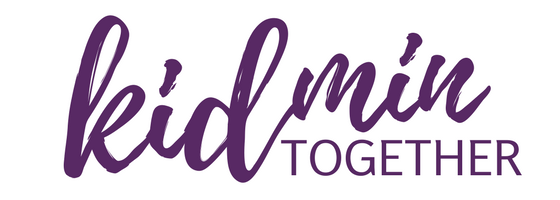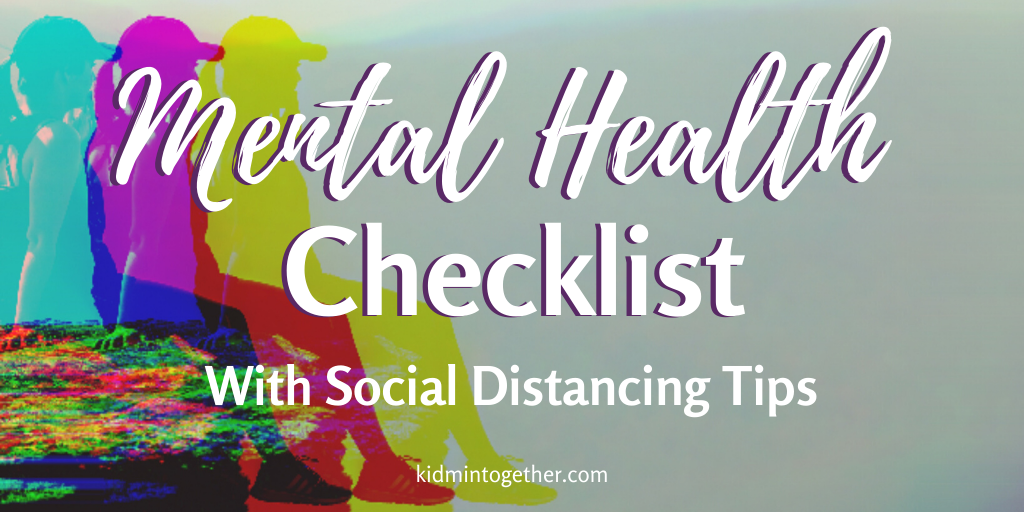May is Mental Health Awareness Month! How are you doing?
When I started being intentional about my mental health, there was a strong stigma about it in the church body. Pastors and leaders liked to give the “solution” to pray more or fast more or [insert spiritual discipline here] more. Very few acknowledged the need for church leaders and volunteers to proactively work towards their mental well-being.
I am not saying – and I will never say – that praying or fasting or whatever more will not work. God is so powerful and involved in our lives today that He can deliver anyone from mental health issues, but quick, miraculous healing is not a part of everyone’s story. Some of us will go through the desert like the Israelites did. We will have to walk through the valley of the shadow of death. We will experience dry bones. We will carry a cross.
We will have to do the work towards better mental health, but we will never have to do it alone. Yes, God is with us. We can trade yokes with Jesus. We also have each other. More and more kidmin leaders are assessing their mental health and working on their mental well-being, as well as encouraging others to do the same and cheering each other on. If you’re not part of a community of kidmin leaders, join one! You can easily find us on Facebook (and if you’re wondering, I’m part of the “I Love Kidmin” and “Children’s Pastors Only” facebook groups).
In this time of pandemic, quarantine, and social distancing, it’s ever more important to stop and take stock of our mental health. Here is my Mental Health Checklist with Social Distancing Tips.

I divided by Mental Health Checklist into three sections: Connections, Your Body, and Take A Break.
Section 1: Connections
- Connect with God.
- Connect with a loved one.
- Connect with a mentor, therapist, or accountability partner.
Our connections are important. Connecting with God is a given, but some might dismiss connecting with a loved one. I’m an introvert and neglect that sometimes, but God created us as relational beings. Like that saying, “No man is an island,” we need each other. We also need people to ground us or help us through tough times, like mentors, therapists, or accountability partners. These connections help us stay mentally healthy.
Social Distancing Tip: Call, text, or video chat with other people. There are many free apps that let you video chat including: Facetime, Facebook Messenger, Zoom, Google Hangouts or Google Meet, Houseparty, Skype, etc. Some people have met in person while keeping at least 6 feet apart and following their local social distancing laws. You can certainly do this, but because this virus is so new and so much about is still unknown, I would err on the side of over-caution.
Section 2: Your Body
Taking care of our physical bodies affect our mental health. It may sound shallow to say that if you look good, you’ll feel good, but it can actually work. Here are three basic things to do to care for your body:
- Get enough sleep.
- Practice good hygiene (shower, brush and floss, wear clean clothes).
- Eat balanced meals.
Social Distancing Tips: I have fallen trap to the delivery apps, but working on correcting myself. Many fast foods are on there and it’s also oh, so easy to use the drive-through. Don’t fall to the trap like I did. Balanced meals don’t give you that fatigue and sluggishness from fast foods. You can get fresh groceries delivered if you aren’t able to go out or if you keep running into empty grocery shelves. Some grocery stores have delivery or curb-side pick-up options. There are also many grocery subscription and meal kit services. I have tried Hello Fresh and loved the convenience and recipes, but found that it’s not great for households of 5 or more (it becomes more expensive than buying the ingredients myself). Shop around the many options out there.
Section 3: Take A Break
This is about stepping away from the daily grind. It’s about giving yourself a mental and physical break. This can also help ease your worries by putting things in perspective. Problems aren’t as big when we pause and step back.
- Unplug for at least 1 hour.
- Spend time outdoors.
- Get up and move my body.
Social Distancing Tips: Everyone is more connected online now than before because in-person classes, church services, and midweek programs became virtual ones. It’s what we have to do, which is why it’s important to unplug intentionally. It gives our eyes and brains a break, and here’s another tip for you: invest in blue-light glasses or filter screens. You can find them in Amazon for cheap. They reduce eye stress from looking at electronic screens too long.
To spend time outdoors, you don’t have to go far. Start enjoying your backyard or front patio again. Open up your windows. If you do venture outside (ie: for a walk), practice social distancing and avoid touching high trafficked areas.
Exercise is very important, and there are many ways to get your body moving when the gyms are closed. There are many free exercise videos on platforms like YouTube, Amazon Prime Video, Netflix, and many other apps. I like searching for “Low Impact Dance Exercises” and choose one that lasts for 10 minutes. It’s a great way to move your body without exerting yourself, and release those feel good endorphins to energize you.
Basically, Practice Self-Care
The items on this checklist falls under Self-Care. Practicing Self-Care is how we work on our mental health. There are many other Self-Care practices, and many other things you can add to your mental health checklist. Consider this a starting point because these are things you can do daily. Don’t neglect your mental health and remember, you’re not alone in this.
You can download this image on your phone to keep it handy!



